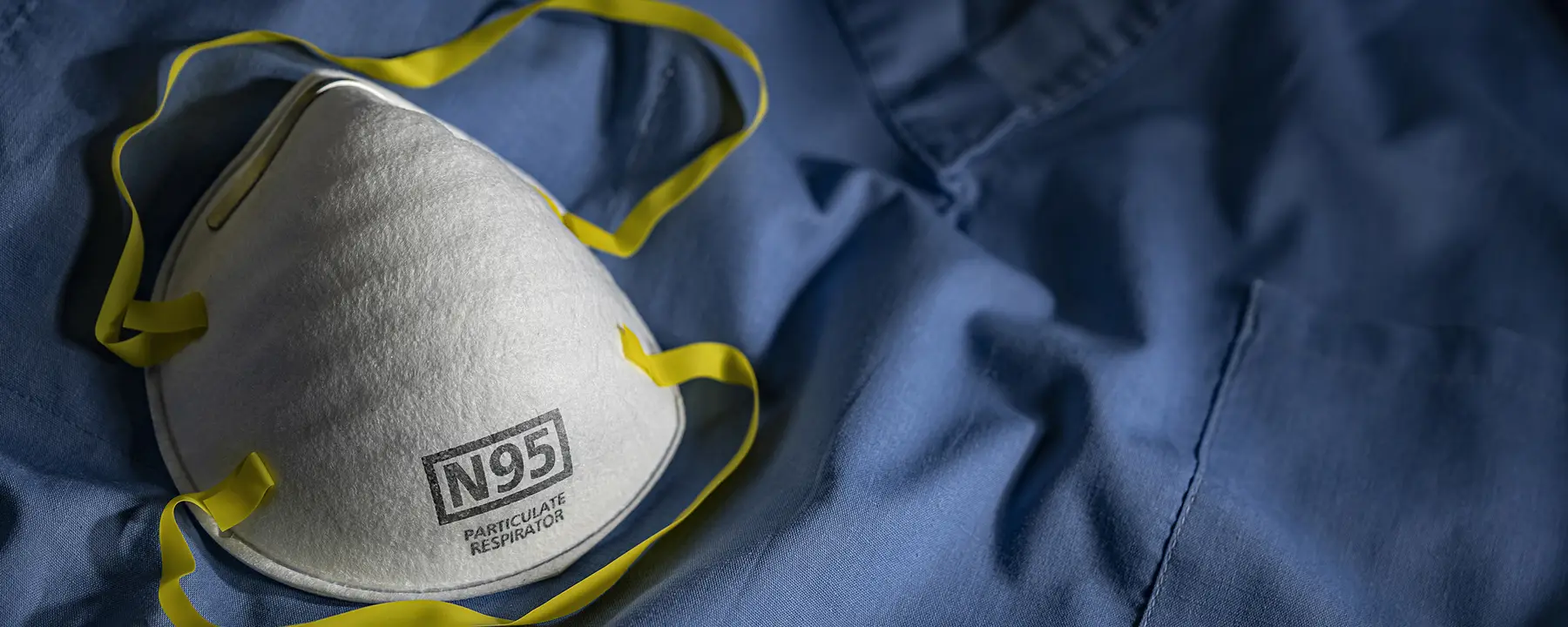Meeting the nation's need for masks through innovative materials and connections
By the summer of 2020—several months after the world first witnessed the frightening impacts of COVID-19—personal protective equipment (PPE) was in short supply. Demand exceeded availability. Healthcare organizations were rationing the gear, leaving frontline health workers vulnerable to infection by the virus they were fighting.
RTI Innovation Advisors works to solve our clients’ greatest innovation challenges. Addressing the PPE shortage by helping companies identify partners or materials to create PPE was an undertaking that reflected our mission and values.
Accelerating Production of Newly Designed Masks
Late on a Thursday in May, we received a call from the Milwaukee MaskForce. This grassroots coalition of over 25 companies, hospitals, and universities was working to design and build reusable, medical-grade N95-style respirators for frontline medical workers and address the critical shortage during COVID-19. The group had built prototype of a reusable mask with a filter insert and couldn’t find a source for the filter media. By Friday we rallied a team, set our goal to have a list of companies by Monday, and ran a design sprint. Our team worked through the weekend, applying creative thinking methods, examining alternatives, and reviewing prior research on filtration.
By Monday, we had compiled a list of 80 companies to contact, and found a company in Arizona that was a potential partner. The company had developed a new N95-spec material, was ramping up production, and was looking for places to donate their materials. We connected them to the MaskForce team. The next day, we identified six additional companies in the process of scaling up production of N95-spec materials, willing to accept new customers, and with a collective capacity to produce millions of masks. Production of the new masks quickly ramped up during summer 2020. By early 2021, more than a year into the pandemic, MaskForce had expanded beyond its initial goals and started selling the masks on Amazon as well as donating them to frontline workers.
Strengthening the PPE Supply Chain
At the same time, states, health care organizations and our government were trying to distribute a limited national stock of PPE, while ramping up production. Through an initiative funded by the Coronavirus Aid, Relief, and Economic Security (CARES) Act, RTI International’s Technology Advancement & Commercialization group and RTI Innovation Advisors partnered with Advanced Functional Fabrics of America (AFFOA), the Department of Defense, and the Office of the Secretary of Defense to address the critical shortage of N95 respirators, masks, and gowns. Our goal was to create a database on the materials, manufacturability, and performance of raw materials used for the manufacturing of N95 respirators and gowns in the United States.
We identified N95 and surgical masks made in the U.S. and provided technical data and specifications for each design, and interviewed manufacturers to obtain additional specifications. We characterized the supply chain and identified companies and contacts to enable the government to build its own supply chain to construct masks in pandemic situations like the current one. Finally, we identified alternative materials that could be used to make masks. We contacted these materials providers for additional information and samples to enable AFFOA to test the breathability and filtration efficiency of each proposed material.
Not only did we create the database that will serve as a critical tool in managing future pandemics, we built a potential supply chain to enable the government to produce PPE as needed.
Increasing the Supply of Essential Equipment for the Pandemic Response
RTI Innovation Advisors has always worked to solve our clients’ greatest innovation challenges. In 2020, the global pandemic eclipsed all other challenges. Clearing obstacles related to the supply and production of PPE is an essential part of the COVID-19 response. Leveraging our extensive ecosystem of government and private sector contact along with our team’s technical agility, we identified new materials and approached to accelerate PPE production.
We are proud to have helped protect the frontline workers whose efforts make the fight against COVID-19 possible. By addressing the PPE shortage in the spring and summer of 2020, we helped move the effort forward. As the world enters a new phase of the pandemic, PPE remains invaluable. The connections we built during the critical early months will help improve the response to COVID-19 and future public health crises.



